The content of the article
A loose nut, this is a common problem. It is often encountered by motorists, plumbers, cyclists and locksmiths. It always takes a lot of time and effort to unscrew a rusted nut.
There are several ways that will facilitate the solution of such a difficult task. But before applying various tricks, read the reasons that lead to souring of the nut and safety techniques.
Why is a rusty nut hard to unscrew
The main culprit of a badly unscrewed nut is rust. This is one of the types of corrosion that appears on the surface of iron. The reason for such formations is the reaction of the metal with oxygen in a humid environment.
In the process of formation of corrosion, a multiple increase in the oxidation product (rust) occurs.As a result, the nut and bolt tightly merge with each other. Metal souring can be so strong that when you try to turn the nut, it will be easy to break the bolt.
Another culprit, badly unscrewing the nut, is pollution. Small particles of metal shavings and dust remain on the surface of the thread. When the nut is twisted, dirt becomes an additional obstacle. As a result, the threaded surfaces of the bolt and nut are wedged.
The third reason is that the nut is too tight. Some novice locksmiths twist the nut almost with his foot. It takes a little time, tightly clamped metal surfaces, stick to each other, aggravating the situation. As a result, it is impossible to loosen the tight nut.
And the final reason for failed attempts to turn the nut is a poor-quality tool. In the process of prolonged use, the edges of the keys are deformed or grinded. It becomes difficult for a damaged tool to grip the nut and pull it off the thread.
What tool is better to use
The right tool will help you quickly unscrew the rusty nut and not damage it.To successfully deal with the problem, use a set of tools. The following tools are best for unscrewing attached nuts:
- set of heads with a crank;
- mechanical wrench;
- socket wrench;
- spanner keys.
Safety
- Do not use damaged tools.
- Turn the nut counterclockwise.
- Securely fix the tool on the nut.
- Wear gloves to avoid injury to your hands.
How to unscrew a rusted nut
You make great efforts and spend a lot of time to turn the nut, but nothing comes out. Do not be upset and in vain to torment yourself. Set the tool aside until it breaks and use a liquid that can dissolve rust and reduce friction.
There are many types of such substances, for example, the most well-known tool is WD-40. There are other rust-dissolving fluids, such as kerosene, carburetor cleaner, gasoline, and brake fluid. Not less effective can be table vinegar, iodine and alcohol. Some locksmiths have noticed the benefits even in Coca-Cola or Fante,which include inorganic phosphoric acid.
Instruction
- Dip the rusted nut well and wait 15–30 minutes. After the allotted time, take the key and try to turn the nut. If it does not work, then the liquid has not penetrated deeply enough. Try wetting again, but with a napkin or a rag strip, and then wrap a nut. So the liquid will last longer on the metal and can better dissolve rust.
- After carrying out a similar procedure, the nut will gradually begin to move. It is possible to accelerate unscrewing if you knock with a hammer. Then take the key (if possible, lengthen it, for example, with a pipe cut), fix it securely on the nut and, with a very sharp jerk, try to tear it off the thread. If the nut is small, it is better to turn off the slide (back and forth).
Heating nut
Instruction:Heat the nut and bolt well (preferably red hot).And then use the spanner wrench to unscrew it. In some cases, the nut has damaged edges, so the key does not help. To solve this problem, weld an end head to the nut and heat the entire structure. Then use the knob to unscrew the nut. During heat treatment, be careful not to get burned.
Nut breaking
This method is not the most profitable, but it often becomes the only saving method to free the bolt from the rust nut. To do this, you can use a chisel, a hacksaw for metal, a grinder or an electric drill.
Instruction
- Using a chisel and a hammer, start punching the grooves on the sides (on the edges of the bolt). Hammering the chisel as deep as possible, it will be possible to increase the internal diameter of the nut. In the end, this will lead to the destruction of the threaded connection. Approximately the same can be done with an electric drill, drilling holes in the edges. The destroyed nut can be easily removed from the bolt. It is worth noting immediately that these tools are applicable if there is enough space to access the nut.
- If you have enough free space, it is better to use a hacksaw for metal or grinder. Such tools will quickly help to deal with the problem.All you need to do is carefully cut the nut along the axis of the bolt.
In this article, the reasons for the jamming of the nut, safety at work, as well as various ways to help solve the problem were considered. Thanks to the described tips, you can quickly unscrew any rusting nut, saving time and effort.
Video: how to unscrew the torn bolt and attached nut

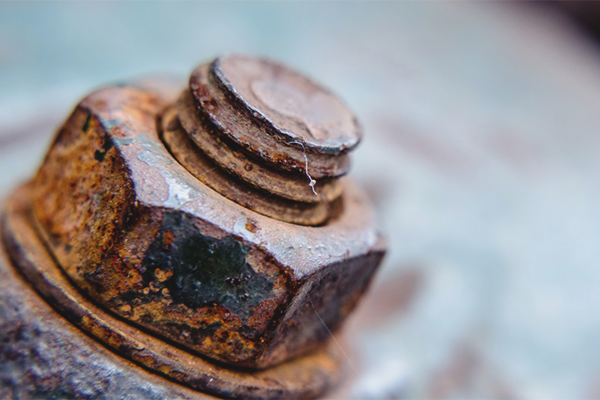
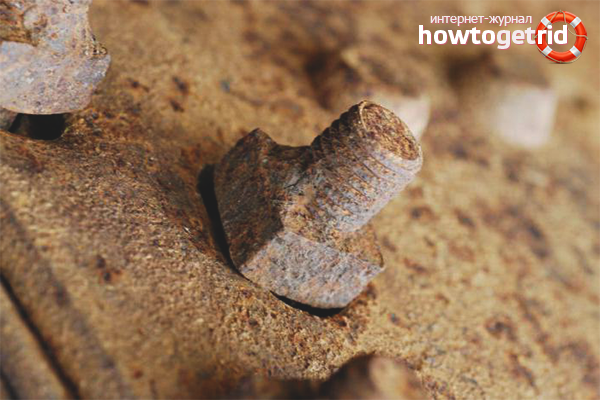


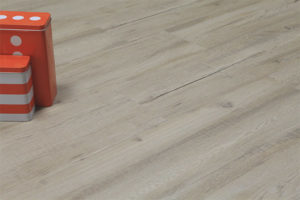
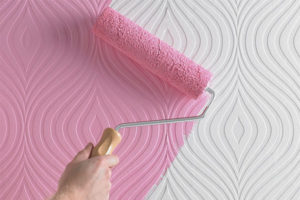

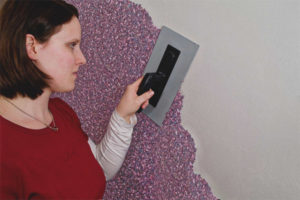
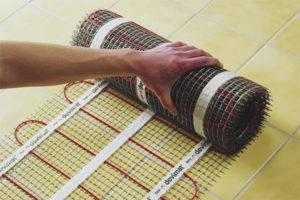

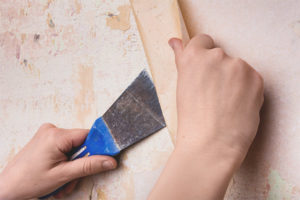
To send